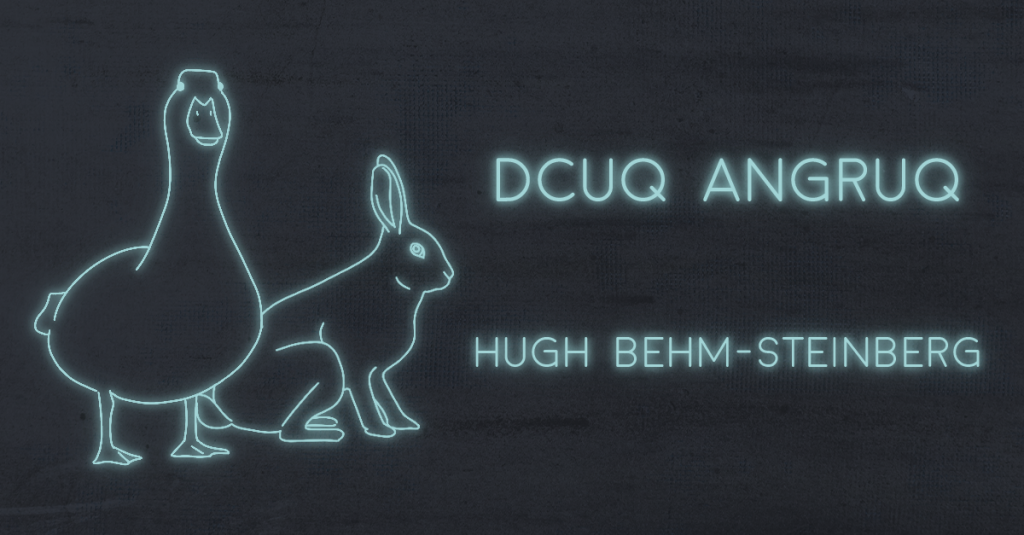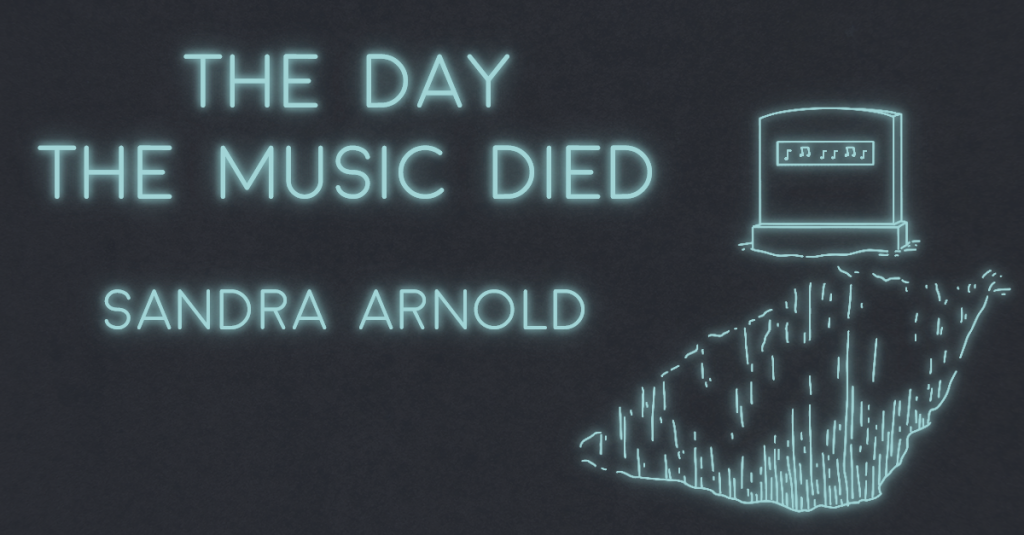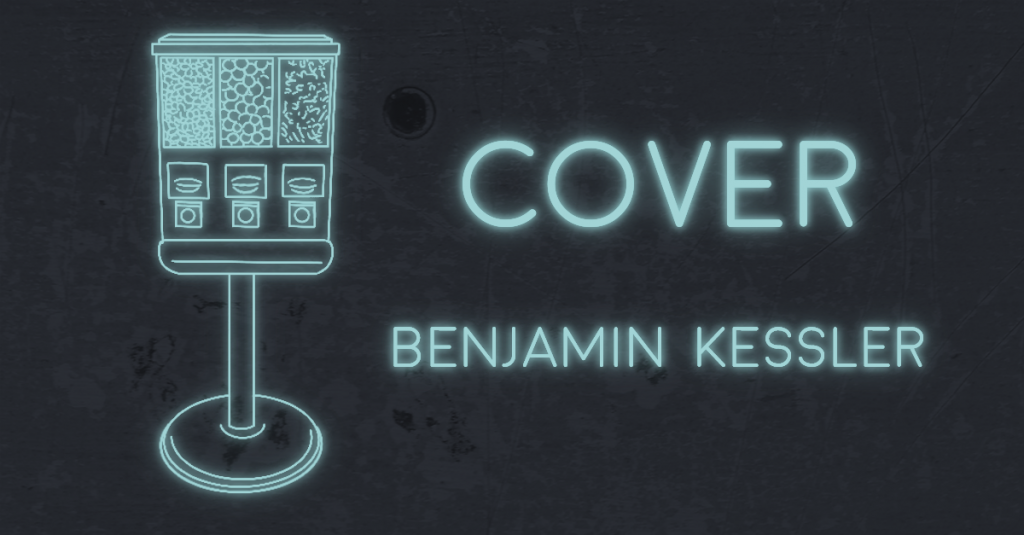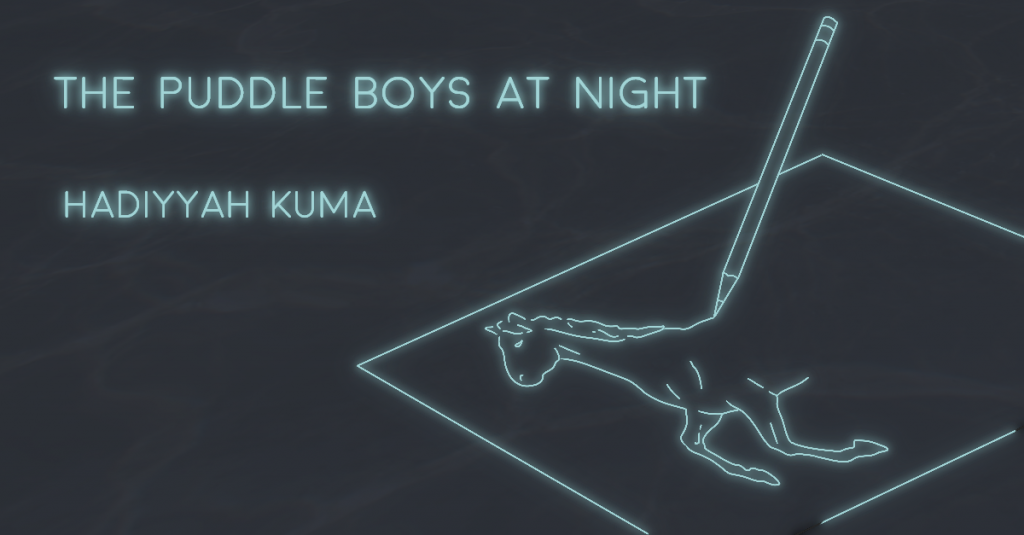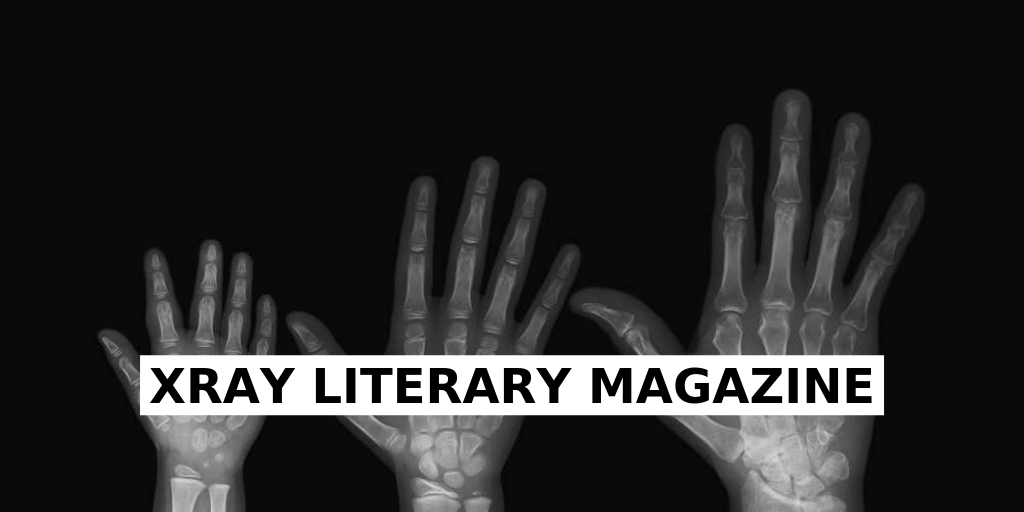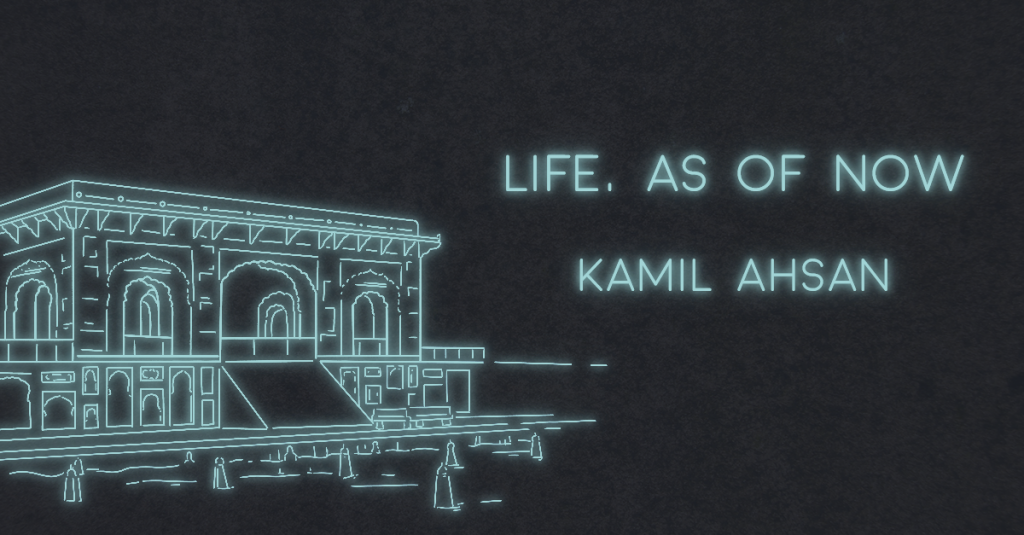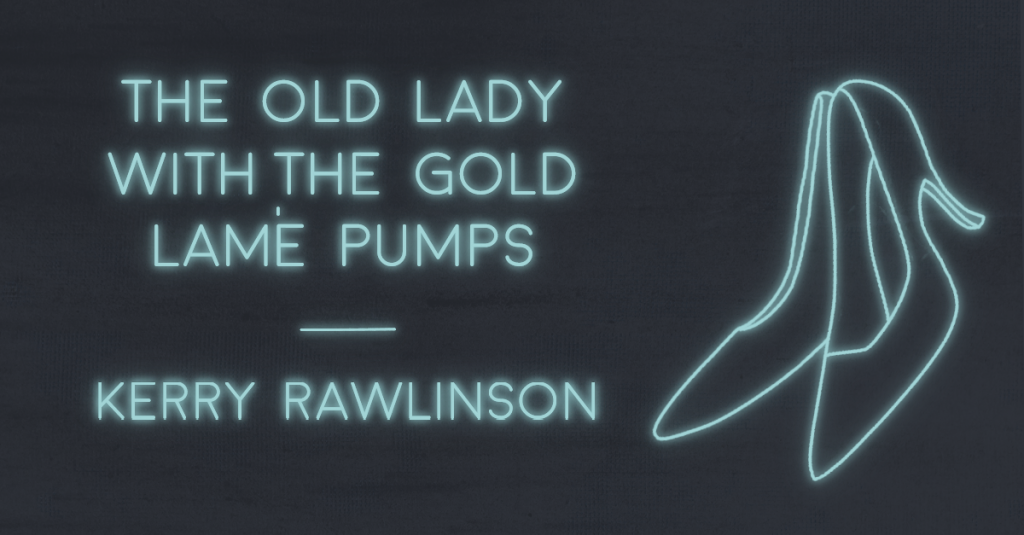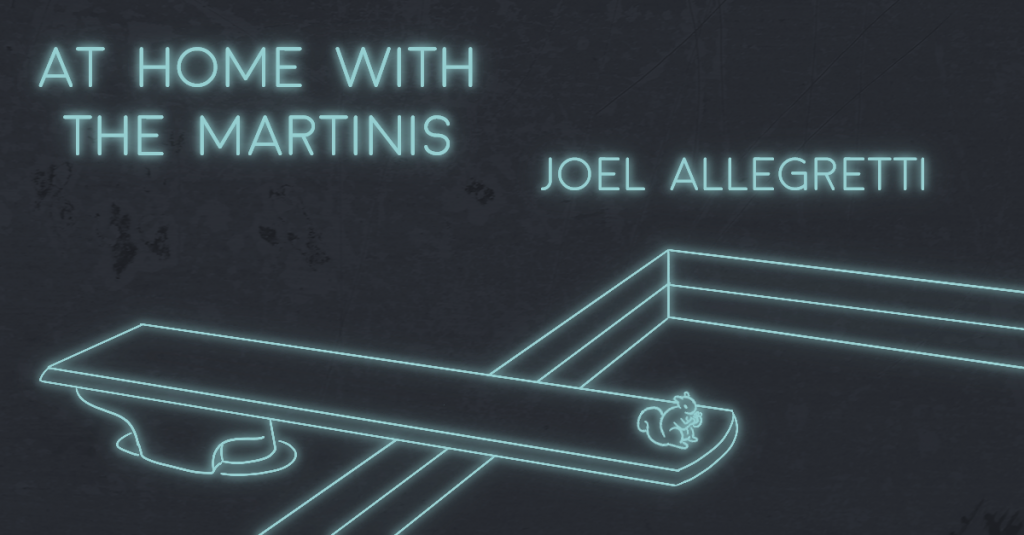The courtship practices of Shalimar Gardens spiked on Pakistan Day. His breath is raggedy. The trees brush the air with heart-shaped leaves, a reminder that the world is passing him by without noticing him sink—the cars that move too fast, the motorcycles that almost run him over, the people, oh all the people, so many people, everywhere everywhere everywhere…
It’s nightfall. He’s never been to the Shalimar Gardens. He never needed to. Fate grabbed him by the collar and shook him before he had a chance to know what he expected. All around him is noise, very ordinary noise. He thought he would feel exhilarated, pained but born anew, terrified. But he only feels the dirt kicked onto his knee by a motorcycle. A man and a woman and two children, one carried by the woman, stop by the side of the road. The din is sliced through by the man’s gravelly voice, as his hands pull on his wife’s dupatta. The older child says she wants to ride in front of him, and there’s a flash of repugnance across the man’s face—even he can see it, from a distance—and it lands as a blow across the child’s cheek. Before he can register his shock, the child disappears, a ballast between her father and mother. The motorcycle speeds into the crowd: the thing holding bodies together. A collective brain containing all these bodies that move like a wave, bursting through the bottleneck’s seams in the traffic. When many things squirm through small openings, it is the smallest of those things that gets bruised.
He feels his face peeling, crackling. A stray dog scampers to his right. He doesn’t really notice it. That is, the part of him that notices the dog is not conscious of the dog. Nor does he really notice that the dog is more careful with the traffic than himself.
At the signal, a family in the car closest to him is squabbling. He goes closer without realizing. A little girl looks at him imperiously and rolls up her window. There must be a shadow, he feels, working independently of him. If a passerby—say, the little girl—took a picture of him, what would it show? A vacant vessel of bone and sinew? A roving shadow stealing away round the corner? If someone was interested by the photograph, would they fail to see beyond this general part of the city, or would they see him—a being that did not coincide with a self?
The cold facts are that in this moment, on this day, on the 23rd of March in Lahore, he has been stripped of all the currency into which he was born. He has no wallet, he has no belt, he has no shoes, he has no cell phone. His shirt pocket is ripped, partially baring his chest. His jeans are shredded at the buttocks, and he holds the fabric together, even as he approaches a restaurant where he thinks maybe he can ask to make a phone call. He stands at the foot of the steps and hesitates. Behind him, there’s a man stabbing through brambles on the sidewalk and onto the small lawn. Ahead of him, people sit inside a glass window on restaurant tables, happy; or at least, ordinary. If this army of the living lives because it has the dignity of the soul, he is dead—or at best, a suggestion of a self.
And the fear and the panic and the pleasure and the longing and the confusion, the absence of all knowledge of an encounter that has happened to him and to him alone, the apprehension, the chance, just the smallest, the smallest of chances that this man who follows him and hides in the darkness can get close enough and grab his arms, thus exposing his bare buttocks mottled with violence that had to have been accidental—"It had to be! It must have been!"—along with the guilt; but then, all of that could just be a consequence of him remaining stationary in a cacophony of lights here, somewhere on Mall Road, the night alive with the smell of foods, each competing with the other, and so he moves as if with this swirling tide up the steps and begins to cry, not for an innocence he’s suddenly lost, but because what if this is relief, or ecstasy, or growth? Despite whatever he failed to feel, and despite his utter lack of innocence, his anxious limbs, prehensile arms and legs pushed. And he ran. And that gave him the forward momentum to speak the minimum number of words for a waiter to lend him his cell phone—until he realized it wasn’t a good idea to call anyone, and then there he was. A trickle of blood pooled over a left thigh, a fulsome pain.
He dials a number. It rings three times.
“Who is this?” Sara asks.
“Listen—I’m in trouble,” he says, and he begins to weep so loudly it orients the nature of the phone call so as to demarcate the ordinary from the extraordinary.
“Umair…What happened? No, fuck that, where are you? What’s going on?”
“I fucked up. I fucked up, I don’t know, I’m at Salt & Pepper, the one on Mall Road. I’m in trouble, I’ve—” He trails off. His eyes drop to the floor and float.
“Have you been running?” she says. She sounds bewildered and as if she’s trying to hide it. But that is not true. She is feigning surprise. It is not a complete surprise.
“Yes. No. Not running…no, maybe you don’t need to come,” he says before a crippling pain travels straight up his legs. He doubles over.
“Where’s your phone?” Sara asks.
“…lost it. Wallet too. Should I take a rickshaw and pay when I’m home? Tell me what to do. I can’t go home.”
He retches, once, twice, and on the third, a wet honk from the pit of a spectral wound empties his stomach.
“Okay, get it out, okay. Okay, stop. Listen. Say yes or no: I shouldn’t call Saad or Raza, right? I can call, um… oh, fuck, well, Zehra’s closer, I can call her. No, wait I’ll come myself. Yes or no? Should I come?”
His feet are bleeding. He barely notices. Two waiters look at him nervously. They whisper to each other.
“Umair! Okay, I’m coming to get you. Umair, just stay where you are, okay?” she says. She’s yelling.
He tries to pull himself together. “No, it’s fine,” he says. But it was like squeezing a pair of trousers five sizes too small; he was maybe a little closer but still too far.
Her voice cut a single chord, flawlessly. Without dropping a note. “Umair, stay right where you fucking are! Come on, stay on the phone, keep talking.”
“I need to give the phone back,” he says.
“Oh. Fuck. Okay, give it back, sit tight.”
“Yes, please.” he says.
“Acha, leaving now,” she says.
“You have to come in,” he says.
“What, why?! OK, I’ll come in but stay put, not even to the bathroom.” Sara’s voice rises in irritation, and it makes him feel as if it is she who grasps the urgency of the situation, not him—and then there’s a relief to that, an impatience that is soothing. Maybe he has overreacted. Maybe there is nothing to any of this. Maybe he is a child as she is a child and they behave like children and things are melodramatic and urgent because they desperately want their lives to be melodramatic and urgent, for perhaps in their world there is a high premium on trauma, a bigger story, a sadder story, a taboo story, a few little white lies stitched into a story that sounds not better but much worse than it is, because fifteen sleeping pills make a teenage socialite more interesting than seven sleeping pills, because three jilted ex-girlfriends are better than one, because two bottles of Absolut in one evening will always be better than one.
This is not one of those stories, even if it retains some of the same elemental capacity for exaggeration. This is the story that would not get told.
He sidles into a booth, taps his feet on a damp tiled floor, a dub dub dub that takes some of the rhythm away from the pain. His eyes droop over the ketchup packets strewn across the table, along with small pieces of chicken, charred bits of food, empty soda bottles. Nobody in Lahore ever cleans up after themselves. Just how it is. Outside the door to Salt & Pepper, there is a soft patter of footsteps. The man sees Umair through it, into a mannequin across the pane of a storefront into it. Or so Umair believes.
The ride to her house in the back of a silver Corolla is quiet. She looks at him and wonders if he’ll ever tell her the whole truth. He avoids looking at her. He thinks she must be thinking he was creating a drama. He is a boy. He could have gotten a rickshaw.
But then she holds his hand, and it is for him an ultimate act of kindness that she looks away from him, though it is for her the natural order of things; an inexorability. The form of something she'd intuited would happen had happened. He dozes off. She wakes him when they get to her house. His breath catches from old cries he was trying to subdue. Like hiccups.
They go inside. He stands in the dark foyer next to a console and a giant round mirror. Sara orders the driver to go. She looks at him standing with his back to her, at the foot of the stairs, shorn of all the willful unrest and commotion that makes Umair himself. She closes the front door behind her.
He’s safe. He’s let go of his torn jeans. The door latch clicks shut. He turns to face her. And although the story will only be told in splinters and things will run their course and nothing will be asked or prevented from happening again, in a knotty shudder of a moment, all of a sudden, Sara’s heart begins to break in ways she does not understand. It will be the barometer she will use for heartbreak for years to come.
